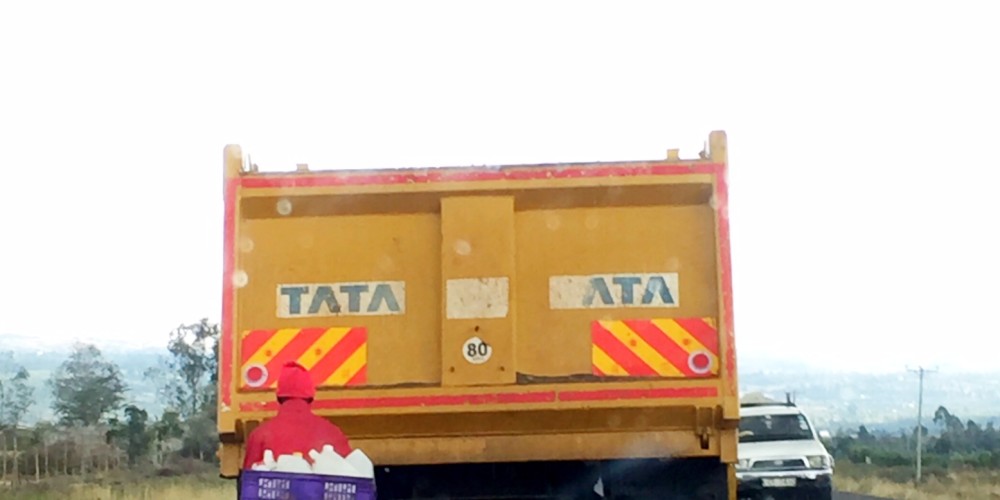Keep Left Unless Overtaking

Many years ago I was a university student in the United Kingdom. I would, of course, take public transport everywhere: trains, buses, coaches. But I missed the feeling of getting behind the steering wheel of a car.
Once, when I had to make an inter-city trip to meet some relatives, I decided to splash out and rent a car for the day. And so my first adventure on foreign roads began. Out on the motorway, I understood the three-lane system to mean slow vehicles on the left; medium-speed ones in the middle; fast ones out on the right.
Being of good Kalasinga stock, I of course saw myself as a fast-lane sort of chap, and stuck myself out on the right, zooming past all the lesser mortals to my left. I lasted 15 minutes. A siren and blazing lights appeared behind me and I was asked to pull over by a police car.
I protested my innocence: I was keeping within the designated speed limit, so what was the problem, officer? What I had failed to digest, of course, was the instruction “Keep Left Unless Overtaking.” The fast lane is not a driving lane; it’s an overtaking lane. You only use it when you need to, and then you get back to the slower lanes. That knowledge cost me a fine that made my eyes water at the time. But I never made the same mistake again.
Keep Left Unless Overtaking. We have those signs on our highways here in Kenya, too. But when was the last time you saw anyone observing that rule? Or being asked to? A recent drive on our Thika “superhighway” revealed that in fact some very slow vehicles routinely hog the fast lane. This means that faster cars have to weave in and out of the lanes in either direction in order to overtake, greatly increasing the level of danger and rate of accidents.
Our accidents record speaks for itself. A rule like that is imposed for a reason: it makes sense. It allows for an orderly procession of vehicles on highways. It saves lives. But here, you will find old jalopies and overladen buses belching smoke on our ‘fast’ lanes. Day after day, with no one stopping them. It’s like we enjoy dying stupidly.
Rules matter in society. They allow for order; they try to prevent chaos. Even within our cities, we struggle with this concept. Take Nairobi’s much heralded new traffic lights, procured at immense cost. When was the last time you saw them work consistently? I stopped at a rare red light the other day. I was hooted at incessantly by those behind me, who clearly thought rule observation was for idiots. On another day I was berated by an irate traffic policeman for not going through a red light. He thought I was an idiot, too, for following the Highway Code.
Paying through the nose for automation and still using manual labour to do the work is the worst possible outcome. We pay for everything and solve nothing. The greater danger is signalling to society that rules don’t matter, they are there to be broken. That way anarchy lies.
Look around you. Who’s following the rules in anything any more? On the roads, bigwigs cause fatal crashes and get away with it. In large organizations, rules are bent in major procurements to serve favoured parties, and no one suffers any consequences. Major corporations are brought to their knees, but no one repays a cent. Women are raped with utter impunity, but the legal system gets subverted and looks away.
When the rule enforcers themselves begin to break every rule, we aren’t going anywhere worth going. You cannot just put a large population of people together without working rules. The history of mankind reveals exactly why rules are needed, and why they need to be followed. By everyone. Without exception.
Every minor rule broken cracks the edifice. Every small transgression weakens authority. We must be very careful here. These are not minor misdemeanours. A society that does not believe rules matter will eventually have its schools burned, its policemen ignored, its coffers emptied.
Or is that already happening?

Buy Sunny Bindra's new book
The X in CX
here »
Popular Posts
- Snakes and Ladders, AKA your lifeJanuary 25, 2026
- Make this your year of being boringJanuary 4, 2026
- The man who passed by one markJanuary 18, 2026
- How things fall apartFebruary 8, 2026
- Pretty isn’t the productFebruary 1, 2026















